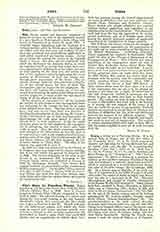

Zingerle, Pius, celebrated Orientalist, b. at Meran, in the Tyrol, March 17, 1801; d. at the Abbey of Marienberg near Meran, January 10, 1881. After studying the Humanities at Meran, philosophy and two years of theology at Innsbruck, he joined the Benedictines at Marienberg in 1820, took vows, October 20, 1822, and was ordained priest, April 4, 1824. With the exception of six years (1824-7 and 1837-9) during which he was assistant pastor at Platt and at St. Martin, two parishes in the Valley of Passeier, he was professor, since 1852 also director. at the gymnasium of Meran. Upon the invitation of Pius IX, he became professor of Oriental languages at the Sapienza in Rome in March, 1862. While in Rome he was also consultor of the Propaganda for Oriental Affairs and scriptor of the Vatican Library.
Unable to accustom himself to the Roman climate, he returned to Marienberg in 1865, where he was made sub-prior and professor of theology. He had a fair knowledge of Hebrew, Arabic, and Persian, was an acknowledged master of Syriac, and gained considerable fame through his German versions of the writings of St. Ephraem. The following are his chief works: “Echte Akten heiliger Martyrer des Morgenlandes” translated from the Syriac (2 vols., Innsbruck, 1836); “I Ausgewahlte Schriften des heiliger. Ephram”, translated from the Greek and the Syriac (6 vols., Innsbruck, 1837; new ed., Augsburg, 1845-6), of which vols. IV and V are German metrical versions of Ephraem’s Syriac hymns, “Ephram’s Reelen wider dir Ketzer”, in vol. XXVIII of “Sammtliche Werke dee heil. Vater” (Kempten, 1850); “Harfenklange vom Libanon” (Innsbruck, 1840); “Festkranze aus Libanon’s Garten” (Dillingen, 1846); “Marien-Rosen aus Damaskus” (Innsbruck, 1852; 2nd ed., Augsburg, 1855); “Leben and Wirken des heil. Simeon Stylites” (Innsbruck, 1855); “Monumenta Syriaca ex romanis codd. collecta” (Innsbruck, 1869); “Chrestomathia Syriaca cum indite vocabularum” (Rome, 1871); “Lexicon Syriacum in usum Chrestomathim” (Rome, 1873); “Ausgewahite Schriften des heil. Ephram” (3 vols., Kempten 1870-6). He contributed various essays on the Ephraemic meter and on the Syrian meter in general to “Zeitschrift der deutschen morgenlandischen Gesellschaft”, vols. II-XIX, and other Syrian studies to “Tiibinger Theol. Quartalschrift” in the years 1853 and 1870-1. He is also the author of two volumes of German poems (vol. I, Innsbruck, 1843; vol. II, Mainz, 1860) and of a few ascetical and other works of minor importance.
MICHAEL OTT

